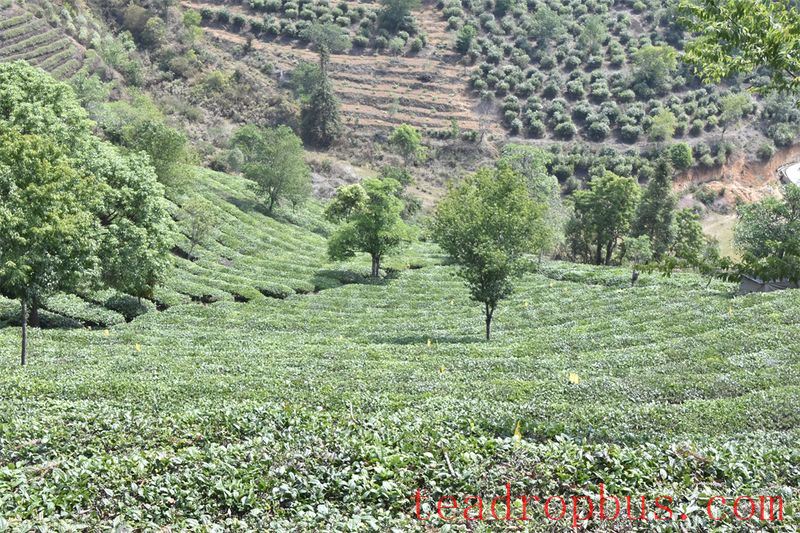The Ministry of Agriculture and Rural Affairs recently responded to Proposal No. 4534 of the second session of the 14th National People's Congress, titled “Strengthening Research, Protection, Inheritance, and Promotion of Tea Culture.” The ministry indicated that it will deepen inter-departmental cooperation, continuously improve the level of tea culture research, continue to protect tea cultural heritage, actively promote tea culture, and enhance its social influence.

China's tea culture is long-standing and profound, rich in content and extensive in scope, being an essential part of China's excellent farming culture. In recent years, the Ministry of Agriculture and Rural Affairs has promoted the implementation of the agricultural cultural heritage protection project, strengthened the research and promotion of tea culture, and guided the Chinese Academy of Agricultural Sciences' Tea Research Institute to conduct innovative research on the transformation of tea culture. This includes systematically sorting out the history and essence of Chinese tea culture, accurately grasping historical context and development laws, closely integrating tea culture with modern technological means and urban-rural social needs, and exploring innovative transformation paths through tea cultural creativity, tea tourism, tea health care, and other methods. The Chinese Association for Science and Technology has also promoted the Chinese Tea Society to conduct research in four areas related to tea culture history, sites and relics, social organizations, and academic research, forming specialized reports. They have relied on the China National Knowledge Infrastructure (CNKI) and the China National Digital Library database platform to construct a tea culture literature database, laying a theoretical foundation for telling the story of Chinese tea and promoting Chinese tea culture. The content “Tea and Intangible Cultural Heritage” has been supplemented and revised into the “National Occupational Skill Standards for Tea Artisans,” strengthening the standardization of tea culture and enriching basic knowledge about tea culture. The Ministry of Agriculture and Rural Affairs stated that in the future, it will deepen inter-departmental cooperation, build an open, hub-based, and platform-type tea culture research system, conduct in-depth research and interpretation of the rich connotations contained within tea culture, and continuously improve the level of tea culture research.
China is the birthplace of tea. From tea cultivation and picking to processing, drinking, tasting, and storing, a complete knowledge system, widespread social practices, mature production techniques, and a long cultural tradition have been formed. Tea cultural heritage is both numerous and diverse. In the national list of intangible cultural heritage representative projects announced by the State Council, traditional tea-making skills including Green Tea, black tea, oolong tea, White Tea, dark tea, and yellow tea are included, along with related customs such as Chaozhou Kung Fu tea and Bai ethnic three-course tea.
It is understood that since 2012, the Ministry of Agriculture and Rural Affairs has successively recognized seven batches of 188 important agricultural cultural heritages of China, 23 of which involve tea culture, including the Jasmine tea planting and tea culture system in Fuzhou, Fujian, and the ancient tea garden and tea culture system in Pu'er, Yunnan. Last year, the central government allocated 826 million yuan from the national intangible cultural heritage protection fund, used for recording and teaching activities by national-level intangible cultural heritage representative inheritors and the construction of national cultural ecological protection zones, providing support for the protection of tea-related intangible cultural heritage projects, the recording and teaching activities by tea-related intangible cultural heritage representative inheritors, and training. In the future, the Ministry of Agriculture and Rural Affairs will continue to protect tea cultural heritage, organize in-depth excavations and systematic sortings, and support eligible tea cultural heritage to apply for intangible cultural heritage and important agricultural cultural heritage projects, incorporating more valuable tea cultural heritages into the scope of protection.
Chinese tea culture embodies the wisdom of the harmonious coexistence between the Chinese nation and nature and reflects the spiritual pursuits of Chinese civilization. In recent years, the Ministry of Agriculture and Rural Affairs has continuously conducted cultural exhibitions under the theme “China in Agricultural Cultural Heritage,” conducting live broadcasts in tea cultural heritage sites to promote traditional farming folk culture; it has also carried out promotional displays along the Ancient Tea Horse Road, guiding systems such as the Jiangxi Fuliang tea culture system and the Guangxi Cangwu Liubao tea culture system to conduct various forms of publicity and promotional activities. The Chinese Association for Science and Technology has strengthened publicity around tea culture popular science, holding science popularization lectures, cultivating popular science brands, and organizing and mobilizing scientific and technological workers to engage in popular science creation in the field of tea culture.
It is understood that going forward, the Ministry of Agriculture and Rural Affairs will work with relevant departments to actively promote tea culture, cultivate and form tea culture brand activities, vigorously promote tea culture, strengthen the training of tea culture popular science talent teams, and enhance the popularization and promotion of tea culture and tea technology innovation achievements, thereby enhancing the social influence of tea culture.